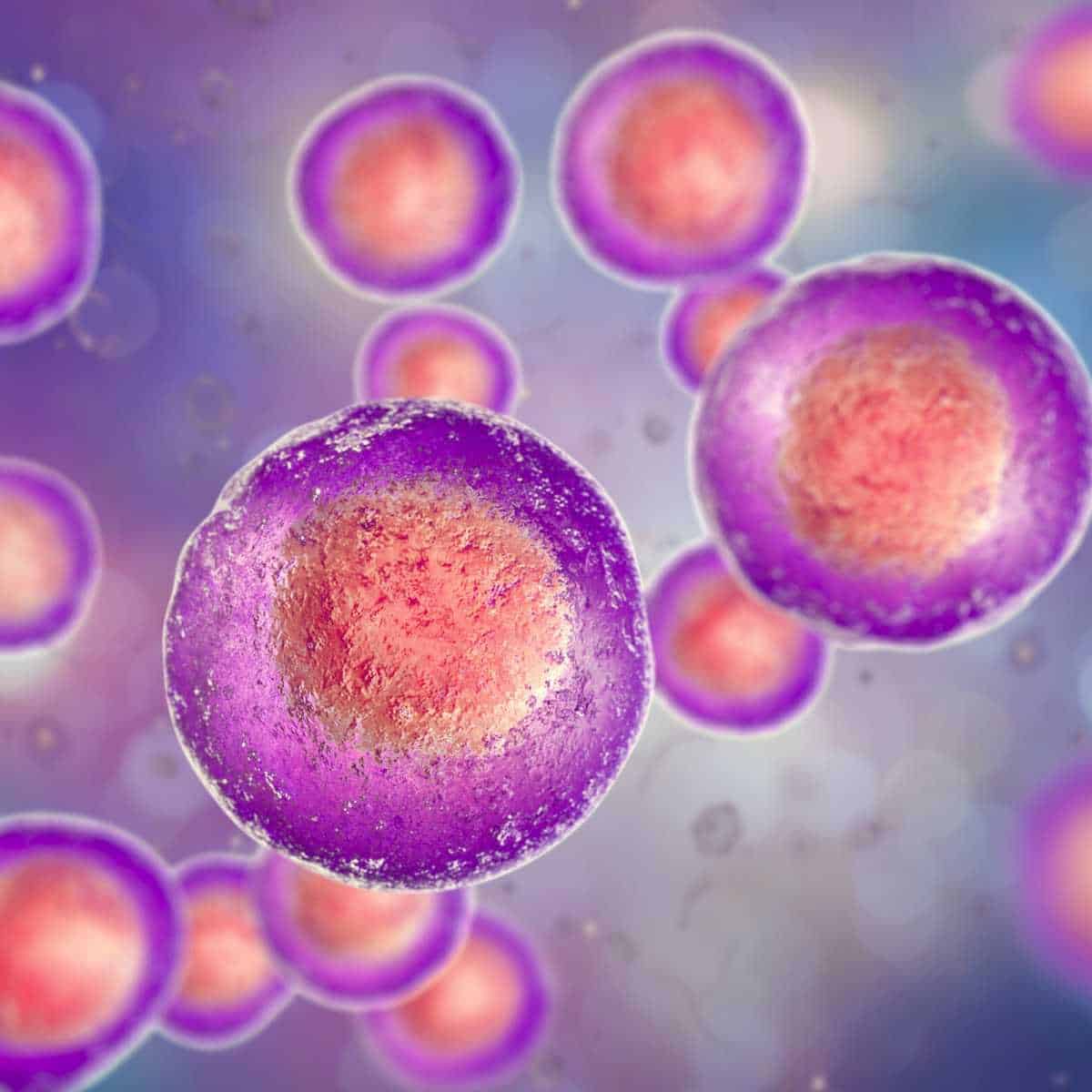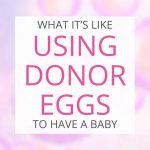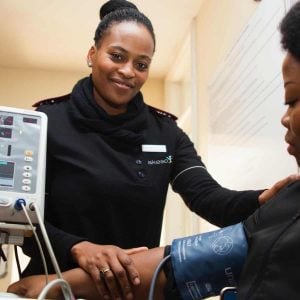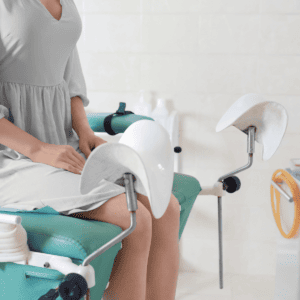When Laura found out that her “ovaries had all but closed up shop at the ripe old age of 32,” she vowed she would find a way to conceive naturally. Using donor eggs, the doctor’s suggestion, was not an option. At least Laura didn’t think so then. But “thousands of dollars poorer, and with nothing to show for it but canceled IVF cycles and negative home pregnancy tests,” she looked into donor egg baby stories and decided to try this new route to growing her family.
When it comes to using donor eggs, nothing feels natural or intuitive. Few women look forward to becoming pregnant with another woman’s eggs.
That is, until they have to. Imagine being fairly young and trying to find an alternative way to begin the family that you have dreamed of for so long.
Laura found herself at this point, and today she’s sharing her emotional (and, at times, funny) story of using donor eggs to conceive her precious 2.5 year old son.

This site contains affiliate links, meaning that we earn a small commission for purchases made through our site. We only recommend products we personally use, love, or have thoroughly vetted.
Laura Never Imagined Using Donor Eggs
Three years prior to considering donor eggs, my ovaries had all but closed up shop at the ripe old age of 32, offering no explanation as to why. After a long, hard road with lots of frustrating test results, I was diagnosed with primary ovarian insufficiency (POI).
I have told my primary ovarian insufficiency story previously on Undefining Motherhood. (Spoiler alert to those of you suffering with POI or with infertility: just like this article, my journey with POI has a happy ending!)
Suffice it to say that I was told from the get-go that I would need donor eggs to conceive, or that my husband and I would need to pursue adoption as the means to family building.
This was a reality I was not ready to accept, as I had never even tried to have a baby up to that point.
I was given a less than one percent chance of conceiving with my own eggs via in vitro fertilization (IVF) and a 1:80,000,000 chance of conceiving naturally.
Oh, but the good old Internet!
There were blogs full of women who had achieved the holy grail of conceiving, either naturally or via IVF. In fact, 5-10% of women with my diagnosis go on to have biological children.
By golly, I would be one of them, I vowed. There would be no need for using donor eggs, or adding the cost of egg donation and IVF. And I sure gave it the old college try.
Donor Egg Baby Stories Don’t Come Easily
But there I was, years later, thousands of dollars poorer, with nothing to show for it but canceled IVF cycles and negative home pregnancy tests.
Now, to continue family planning with my biological eggs, we were facing an $88,000 price tag and years worth of treatments to embryo bank with my own eggs.
Plus, we still faced <1% chance of success because of my diagnosis of primary ovarian insufficiency.
I remember thinking that I really didn’t want to spend that kind of money to pass on my shitty genetics.
And what if I have a girl? Am I saddling her with the same fate?
I really just wanted a baby and to move on, and using donor eggs could help me do just that.
The Lone Ranger of Alternative Reproduction
Once we began seriously thinking about using donor eggs, we had so many questions:
- Who would be the donor?
- How do I find this magical woman?
- Could I even ask someone to go through the rigors of IVF for me?
- Could she come take my baby down the road? [Editorial note: read more about this in our article on embryo adoption]
- What would people think?
- Would they judge our kids for this?
I hate to say it, but the last two questions bothered me the most. There’s a lot of public opinion when it comes to infertility.
We had already tried adopting and had hit road blocks, with a side of gut intuition that it wasn’t the right road for us.
Would people be understanding of bringing in a third party to help us have a child?
I was so hung up on it because, at the time, I knew zero people who had used donor eggs. I felt like the Lone Ranger of alternative reproduction.
I confided to my close friend, Cynthia, about all the concerns I had, and her response gave me my breakthrough.
“No one cares about that, Laura. We all just want to see you have a baby after all you’ve been through.”
It was my watershed moment that gave me permission to let my genetics go.
Your Reason for Using Donor Eggs is VALID
Maybe you’re stuck there too–between possibility and probability.
Maybe you’re scared your family won’t approve.
Or maybe you’re ready to use donor eggs but don’t know where to start.
One thing is certain: you are not alone.
Being that females are born with all the eggs they will ever have, and even at their most fertile, 50% of all eggs are crap, the longer we live, the odds are stacked against us in regards to our fecundability.
There are swaths of women who could greatly benefit from a young, fertile egg donor.
Maybe your genetics aren’t so hot or you only ovulate once a year.
Maybe your supply has dwindled or you’re in your forties.
Or you could have unexplained infertility and years of IVF have taken their toll.
The point is, there are so many reasons you might choose to use donor eggs.
And whatever your reason, it’s valid. You don’t require anyone else’s approval if you feel you are ready to ask for a donor’s help.
You’ve Decided to Use Donor Eggs. Now What?
So where to start?
There were too many options and so many unknowns.
I was ignorant of the process, naturally gifted at overthinking, and I was feeling the pressure of already having lost wads of cash to the depths of my cervix.
The first place to start is to ask what options are available to you at your current fertility clinic:
- Can I pick my donor or will she be chosen for me?
- Is there an option of frozen vs fresh donors?
- How are donors recruited and selected?
- How are donors compensated?
- What are our legal protections?
How to Find a Donor
If you are allowed to pick your donor, and don’t have a friend/sister/cousin etc who is willing to donate, I HIGHLY recommend getting a list from your reproductive endocrinologist of donor banks they recommend and have worked with previously.
If you do have a known donor, such as a family member, I also highly recommend both parties doing counseling with a psychologist who specializes in infertility.
There are lots of ways this can get messy. Lots of people worry about the psychological effects on an egg donor and a recipient mom. More on that later.
If you have the option to choose an egg donor, and you prefer an anonymous one, the next step is deciding whether to use a frozen or fresh embryo.
Frozen Donor Egg
Frozen egg donors are women who have already undergone the IVF process and the resulting unfertilized eggs are frozen for later purchase and use.
The eggs from the retrieval will be studied for signs of a healthy oocyte: a single polar body, clear cytoplasm, and Zona pellucida (the shell), and a small area between the Zona pellucida and the cell membrane.
The “healthy” oocytes are then divided into lots of 6 or so. Once purchased, they are thawed, mixed with the intended sperm, and if they make it to blastocyst, either introduced to your sacred vessel or frozen for later use.
Fresh Donor Egg
A fresh egg donor undergoes stimulation and egg retrieval. You receive the entire lot eggs harvested from her egg donation cycle.
The eggs are immediately fertilized with the intended sperm and, if you wish to prepare for an embryo transfer along the same timeline as her IVF cycle, you can transfer a day 5 blastocyst and freeze the remaining.
Some clinics also offer a “shared cycle” where there are 2 or more intended donor egg recipients who split the cost of the donor egg cycle. This can be a great option for people overwhelmed by the donor egg IVF cost.
How Much Does it Cost to Use a Donor Egg and Go Through IVF?
The cost of using a donor egg will depend on which clinic you use, but it is more costly than using sperm donors. This is where I interject an important note. As with all things in this world, this process can be corrupt.
It can be tempting to use cheaper or foreign banks. If you do this, please do your research and ask the following questions:
- Is the bank reputable?
- Where is the donor from?
- How are donors recruited?
Believe it or not, women can be enslaved as donors. You also need to vet how donors are compensated.
Keep in mind, the more experienced a donor, the higher the compensation that is expected. If a new donor is requesting $15,000, something stinks.
Don’t let this possibility scare you away, just do your due diligence and keep yourself (and your donor) safe.
Why Do Donor Eggs Fail?
Back to the fun stuff.
We originally went the frozen route as I was scared some uber fertile 25 year old was going to give us 28 embryos that we would have to find homes for once we had completed our family.
We were allowed to choose our donor, so we searched the donor boards far and wide, unfortunately not thinking to ask which banks our doctor had previously used.
We found a cute, previously successful donor, and purchased a lot of 6 eggs plus an additional 2 eggs. Unfortunately, our lot was a fail.
We had no good blastocysts. We transferred the two “best” anyway, but they resulted in a negative pregnancy test.
As always, nothing is a waste of you learn from it.
What we learned was our lot was frozen prior to 2013, when things were done the old fashioned way: nice and slow, making them much more prone to damage. Donor eggs can fail if frozen this way.
Please make sure any eggs you purchase were frozen by egg vitrification. This process freezes eggs fast, with less damage and much higher success rates.
Online Dating, But With SUCCESSFUL Donor Banks
We then decided to move onto a fresh donor based on some statistics we had learned from our previous cycle.
Remember how I said nearly half of the eggs of the most fertile women are not any good? For example, if a donor produces 18 eggs, then we can statistically assume about 9 of them will be incompetent.
Since eggs are usually divided into lots of six for a frozen donor, theoretically, you could purchase a lot of 6 bad eggs. We felt this also could have contributed to our first-round failure.
This time, we requested a list of preferred donor egg banks with whom our reproductive endocrinologist (RE) AND embryologist had had personal success.
Enlist Your Embryologist in the Egg Donation Process
By enlisting your embryologist in this process, you only increase your odds for success.
Once you begin searching donor banks, it’s much like online dating. You filter by what you’re looking for. We began searching for our donor according to our preferred qualities:
- High IQ or GPA
- White
- 5’5” or shorter
- Dark haired
- Green eyed
- Healthy genetic background.
It goes without saying that the more specific your requests, the smaller your pool of donors to choose from will be.
I recommend knowing what qualities are non-negotiable for you and which you can compromise. For us, the high academics and clean genetics were intractable.
The rest, we were open to the possibilities. Because of that, I started researching in the “multiracial” category. That’s how we found our donor.
Being careful with your filters will help open up possibilities for your perfect donor.
The Importance of Counseling When Using Donor Eggs
Once we selected our donor and signed all the paperwork, my RE required me to undergo counseling.
They wanted to ensure I understood what I was walking into and was mentally stable enough to raise a non-biological child as my own.
I can’t recommend this enough. It allowed for open dialogue between my husband and me on how we would raise this baby and the potential future issues that can arise from this using donor eggs.
This counseling also helped me heal and grieve the losses I had already endured.
It also brought up discussion of scenarios when hadn’t even thought of concerning a donor child.
It helped prepare me for the psychological process of undergoing pregnancy and parenting having used an egg donor.
I am truly thankful that counseling was part of my journey as it fully prepared my heart for my donor baby.
Pregnancy and Miscarriage When Using Donor Eggs
After that, everything was a whirlwind. I had a saline sonogram and waited for my period.
Our donor underwent stimulation and retrieval, and we received all 19 eggs she produced.
Seventeen of those fertilized and 6 made it to blastocyst. We transferred one immediately and froze the remaining.
Fifteen days later, we had our two pink lines!!! After 3.5 years of banging my head against a wall, I was pregnant within two months of making the transition to donor eggs.
I would love to say it was all roses and baby showers from then on out, but it wasn’t.
Using donor eggs puts you back on par with all the other fertile women of the world. And just like them, you might face miscarriage grief. Which, sadly, we did at 11.5 weeks.
That was a blow I wasn’t prepared for.
Just as with the failure of our first donor, I was befuddled and devastated by the losses as I had always viewed donor eggs as a “shoe-in.”
As with all parts of artificial reproduction, nothing is guaranteed, and that includes using donor eggs. It merely improves your odds, and for me, drastically, thank goodness.
After taking time to heal, we transferred two beautiful embryos that resulted in our 2.5 year old son, who is the light of my world.
I May Not Have Been His Architect, But I Was His Builder
I know the fear of losing your biological link and the trepidation of considering using a donated egg.
I was always worried that I wouldn’t be able to love my son like my own, or that I’d always see him as “some other woman’s baby.”
But from the moment of transfer, he was mine. With every dry heave to every kick, he was my own.
I built him with my flesh and blood, my body choosing which genes he would express. I may not have been his architect, but I was his builder.
My son only knows me as momma, and I hang his moon. I see myself in his actions everyday, and often hear how much he looks like me.
Inside, it makes me giggle and beam with pride.
It’s funny, because an extremely common Google search is, “donor eggs will the baby look like me?”
And while the question seems silly and the answer obvious, the reality is that my donor egg baby is my baby through and through. And when people think he looks like me, that’s just fine.
I Wouldn’t Have It Any Other Way
Now, if I had the choice to have my biological child, I’d still choose my donor embryos if it meant I could have more like my perfect donor conceived son.
It is a beautiful story, it is our story, and it was worth all of it, every step of the way.
General FAQ about Using Donor Eggs
When a woman is unable to, or chooses not to, conceive using her own eggs, she can use eggs that are donated by another woman. Usually, the egg donor will have higher quality eggs and/or a better genetic background than the receiving mother.
Donor eggs are most often used by women who cannot get pregnant using their own eggs, women experiencing recurrent miscarriage due to low egg quality, or women who do not want to pass on their family’s genes (usually because of major illnesses).
The cost of using donor eggs varies based on clinic, background of donor, experience of donor, and more. The general range to purchase a batch of eggs is anywhere from $5,000 to $15,000.
For women with few eggs or low egg quality, donor eggs are significantly more successful. That said, nothing is guaranteed when using donor eggs, or any other type of assisted reproductive technology.
A child carries the DNA of the woman who provided the egg and the man who provided the sperm.
Other Infertility Articles
- Fertility and infertility definition + what it’s like
- Laura’s primary ovarian insufficiency story
- What is embryo adoption
- Carly’s cancelled IVF cycle
- How to comfort a friend who can’t get pregnant
- What to say to someone struggling with infertility
- In-person and online infertility support groups
Posts about Miscarriage
- What to expect when miscarrying
- How to deal with miscarriage
- Recurrent miscarriage
- Success after recurrent miscarriage
- What it’s like having recurrent miscarriage testing










